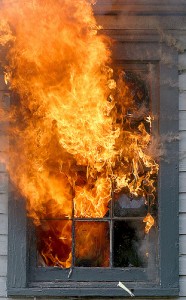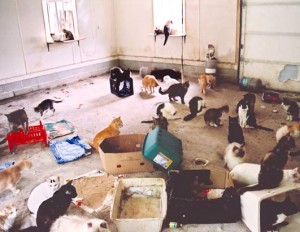Posted by Teresa on July 18, 2013 under Landlord Tips, Lease and Rental Agreements | 
 In Washington and Colorado, voters decided last year that marijuana should no longer be illegal for recreational use. Both states are hammering out rules, regulations and policies to cover this new freedom. But landlords can be stuck in the middle, since pot is still illegal under federal law. Many have added simply added marijuana smoking to their overall smoking bans to keep things simple.
In Washington and Colorado, voters decided last year that marijuana should no longer be illegal for recreational use. Both states are hammering out rules, regulations and policies to cover this new freedom. But landlords can be stuck in the middle, since pot is still illegal under federal law. Many have added simply added marijuana smoking to their overall smoking bans to keep things simple.
But if you don’t live or own rental property in either Washington or Colorado, marijuana is still illegal. And as a landlord, you don’t have to put up with any illegal drug use on your property.
The best way to prevent it is to implement and enforce a zero tolerance drug policy—and to make sure that every applicant and tenant is aware of it. Put it on the lease application and of course, in the lease itself.
Landlords can be at great risk when tenants break the law by using their property for illicit purposes—even if they are completely unaware of it. Hands-on management and close-up monitoring with routine inspections can help you avoid this problem. Of course, you’ll need to give tenants ample notice that you plan to enter the unit, and you certainly can’t snoop through their drawers and closets. So how can you tell if illegal drugs are around?
Many landlords will tell you that their tenants aren’t all that careful when it comes to hiding their drug paraphernalia. Or, you might just catch the odor of marijuana wafting out an open window or through a vent when you’re walking around your property. Keep your ears and the lines of communication open, and you might have other tenants tell you that they’ve seen signs that could indicate drug activity.
When you suspect tenants are using, buying or selling drugs in your rental property, it’s in your best interest to deal with it. If your lease contains a clause that tenants agree to not violate laws, including possession, use, manufacture or sale of illegal drugs, then he or she is violating the lease agreement. Your next move should be to follow your states laws and initiate eviction proceedings.
Evicting over marijuana smoking might seem like evicting over beer drinking, but as long as it’s illegal, you could be open to litigation. It also sends a signal to all tenants that you will always enforce the terms of your lease, 100%. Otherwise, the risk is just too great.
Posted by Teresa on October 1, 2012 under Landlord Tenant Lawsuits, Landlord Tips | 
 Every experienced landlord has a horror story or two about terrible tenants. But a website based in Florida has visual proof: pictures of tenants and the destruction they leave behind.
Every experienced landlord has a horror story or two about terrible tenants. But a website based in Florida has visual proof: pictures of tenants and the destruction they leave behind.
The photos are posted on TerribleRenters.com, a site that aims to spare other landlords the trouble of renting to these folks. Each resident’s full name, along with a description of the problems he or she caused is posted, with photos of the property. Some postings include photos of the tenant.
Check out the site, and you’re going to see what countless landlords are forced to deal with when problem tenants move out:
- Crayon marks on walls.
- Burns on hardwood floors.
- Bags of garbage.
- Un-bagged garbage—piles of it.
- Tenant possessions simply left behind.
- Holes knocked through walls, leaving one room open to the next.
- Filthy carpets and linoleum.
- Rotten food left in refrigerators.
- Ovens that have never been cleaned.
- Drug paraphernalia.
- Animal feces.
- Stolen appliances and fixtures.
- Spray painted messages on walls and ceilings.
The list goes on and on. It is truly astounding to see how some people live. It’s even more shocking that they think it’s acceptable to leave such messes behind.
The typical “terrible tenant” has been evicted for non-payment of rent, not for damaging the property—so landlords face a double-whammy: loss of rent, plus the expenses of cleaning up garbage and property, expensive repairs and replacing stolen items.
TerribleRenters.com is based in Florida and most of the submissions are Florida residents, but some are from other states. Landlords post anonymously. Some are looking for their tenants to serve them notice or to file charges. Others just want to warn landlords not to lease to these problem tenants.
The best way to avoid problem tenants is to conduct thorough tenant screening. And it doesn’t hurt to Google the names on the application. Who knows? Maybe your applicants are listed on a terrible tenants site somewhere!
Posted by Teresa on August 31, 2011 under Landlord Tips | 

Now that the kids are starting to return to school, landlords can turn their attention to fall maintenance duties at their rental properties. Now is a good time to schedule routine maintenance and inspections at all your rental units, and see what you’ll need to do over the next few months to prepare for winter.
8 Landlord Tips for Fall:
- Don’t wait until the first cold snap to discover the heat isn’t going to work. Turn on the furnace at your rental properties, and make sure it runs. Give new tenants a lesson on how it works, and what signs for problems to be on the look out for.
- While you’re at it, change the furnace filters. You could even leave several behind and ask tenants to change them on the first of the month (after they pay the rent, of course). If your tenants don’t remember to change them, you’ll have a handy stack to do it yourself next time you stop by.
- Change the batteries in smoke and CO2 detectors. Remind tenants not to remove the batteries—ever—even if the detector is beeping.
- Locate all water shut-off valves. Prevent water emergencies by showing tenants where the water main, water heater, and any other valves are located. Then instruct tenants on how to turn them off in case of emergency.
- Speaking of water heaters, drain a few gallons from the tank through the drain valve to remove sediment that can interfere with performance.
- Remove any outside garden hoses and cover outside faucets. Install inexpensive insulators to prevent freezing pipes—and expensive repairs.
- Check handrails on stairs and railings on decks. Before things start to get slippery, be sure they are in good shape, or repair them if they are not. Making sure all are secure can prevent serious injuries to tenants and visitors.
- Finally, look around while you’re in each unit, to gauge how tenants are treating the property. If you see signs of damage, point out that nipping it in the bud can help them keep more of their security deposit when moving day comes.
Posted by Teresa on January 11, 2011 under Landlord Tenant Lawsuits, Tenant Screening & Background Checks | 
 You’re probably familiar with the news story about a house in Escondido, CA, where the resident is accused of making bombs and plotting bank robberies. Because of danger to neighbors, the decision was made to burn the house completely to the ground.
You’re probably familiar with the news story about a house in Escondido, CA, where the resident is accused of making bombs and plotting bank robberies. Because of danger to neighbors, the decision was made to burn the house completely to the ground.
Now the question is, “Who’s responsible for the compensating the property owners?” While the county made the decision to destroy the house in the interest of public safety, where did that leave the owners of the home, who rented it to the accused bomb maker? Should the owners’ insurance company reimburse them for the loss? Or is this a necessary expense of the taxpayers of San Diego County, who are already burdened with the expenses of removing the hazard and the resulting cleanup?
Obviously, the accused man, George Jakubec, bears the full responsibility for his actions. But it’s doubtful he’ll have the ability to repay the homeowner. Some say the landlords should be responsible for their loss and to the county for all expenses because of negligence—that they should have known of this tenant’s activities. Questions have arisen about whether proper tenant pre-screening and periodic inspections were conducted.
However, there is no proof that the landlords didn’t screen the tenant prior to signing a lease. Even if they had, the suspect’s crime record has not been released, so we don’t know whether or not he had a criminal record that would have prevented the landlord from renting the property to him.
Most landlords know that their tenants have the right to peaceful habitation, without harassment or unnecessary inspections. However, landlords who care about their properties schedule periodic maintenance to not only protect the property value, but to ensure that illegal or dangerous activity is not taking place.
In the Escondido case, the landlord’s attorney has filed a claim with San Diego County, asserting that no legal justification existed to burn the house. Further, the claim states the eminent domain procedures that would have compensated the property owners were not followed. We’ll keep watching for updates.
In the meantime, a word to the wise: keep conducting thorough tenant screening and background checks, and schedule periodic inspections of your rental properties. It’s so much better to be safe than sorry!
Posted by Teresa on April 30, 2010 under Landlord and Tenant FAQs, Landlord Tips | 
 Let’s say you’re a hands-off landlord, who keeps an eye on things outside your rental units; but generally, you don’t go inside until and unless you’re called upon to repair or replace something.
Let’s say you’re a hands-off landlord, who keeps an eye on things outside your rental units; but generally, you don’t go inside until and unless you’re called upon to repair or replace something.
If you’ve ever been surprised by the condition of your rental unit after a tenant moves out, perhaps you should consider inspecting your rental properties more often. Your lease probably stipulates that you are to be given access to the property with proper notice—so before barging in on your tenants, check your local and state laws.
Here are five reasons to inspect rental properties on a regular basis:
1. To see how many people actually live there. If you’re not around to check, who’s going to prevent unscreened tenants from living in your property? You might not ever know that your tenant, the sole lessee who pays the rent every month, actually has 3 friends living in your 1-bedroom apartment. Friends staying over are one thing, but you have the last word on who is allowed to live in your rental unit.
2. To check for undisclosed pets. The Internet is full of posts by tenants who aren’t supposed to have pets and hide them when the landlord stops by; or tenants who are approved for one cat, but have four. What about the 15-pound dog you approved that’sbeen replaced with a 75-pounder?
3. To check for illegal use of your property. Your tenants could be running a business from your rental property—from day care centers to illegal meth labs—and you need to know what’s going on. After all, you are liable for your tenants conduct and activity. Don’t find out when it’s too late that illegal commerce is taking place on your property.
4. To verify proper use of plumbing and electrical systems. Again, you don’t want a fire to be your tip-off that tenants have overloaded electrical outlets. And that small drip under the sink? If nobody tells you about it, you might soon be replacing the kitchen subflooring.
5. To replace smoke alarm and CO2 alarm batteries. Smart landlords keep spare batteries in their toolkits. Replacing worn out batteries can save lives.
From plumbing leaks to illegal drug activity—you truly never know what you’ll discover when inspecting your rental units. Preventing property damage and even loss of life is worth the time and effort involved, so call your tenants and schedule an inspection today!
Posted by Teresa on January 23, 2010 under Landlord and Tenant FAQs, Landlord Tips | 
Landlords, do you really know what’s going on inside your rental properties? Has a tenant ever surprised you with unacceptable (or illegal) behavior? How many of you have discovered evidence of an unauthorized pet—after the tenant moved out?
It only takes a quick scan of a newspaper to find the horror stories landlords and property managers must deal with: Woman found with 32 cats in studio apartment; Police raid methamphetamine lab in neighborhood home; Marijuana-growing operation in basement shocks neighbors.
As a landlord, you have the right and duty to inspect your rental properties. The right to know what activities are taking place on your property should be clear in your lease. If your tenant signs it, they affirm that they agree. The duty falls under protecting your other tenants and the community around your property by keeping illegal activity out of your rentals.
Scheduling periodic inspections can be done as soon as the lease is signed. Or, if you decide at any time during the lease period to begin inspections, just let your tenant know when you’ll be there. The element of surprise could work in your favor if you suspect a tenant is breaking the rules, but remember that in most states, you must give notice prior to entering a tenant’s unit.
Communicate with your tenant. Let them know that the inspection is routine and necessary to ensure that systems are operating properly, or to check for plumbing leaks, test CO2 levels, locks, fire extinguishers or structural problems. Allow them to ask questions. Tenants with nothing to hide will likely have no problem with your coming into their home. If a tenant wants all the details of the inspection, or asks for more time, you might have a problem on your hands.
On inspection day, check all the systems, fire extinguishers, smoke alarms, and plumbing. As you walk through each room, see what else is going on. Listen for any odd noises, like a hidden dog or cat (it happens!). Look for signs of animals, illegal activity, and “odd-shaped” plants. If there is a basement, attic, or storage area, check them out, too. Any drug-related activity is likely to occur out of sight.
If you find evidence of illegal activity, do not confront your tenant on the spot. Call the police and tell them what you have seen or heard. If the tenant’s infractions are lease-related such as extra people or animals you have not approved, follow your established procedures for tenants who break the provisions of your lease.
A simple habit like regular inspections of your rental properties can go a very long way to preventing big problems!
 Landlords, do you really know what’s going on inside your rental properties? Has a tenant ever surprised you with unacceptable (or illegal) behavior? How many of you have discovered evidence of an unauthorized pet—after the tenant moved out?
Landlords, do you really know what’s going on inside your rental properties? Has a tenant ever surprised you with unacceptable (or illegal) behavior? How many of you have discovered evidence of an unauthorized pet—after the tenant moved out?
It only takes a quick scan of a newspaper to find the horror stories landlords and property managers must deal with: Woman found with 32 cats in studio apartment; Police raid methamphetamine lab in neighborhood home; Marijuana-growing operation in basement shocks neighbors.
As a landlord, you have the right and duty to inspect your rental properties. The right to know what activities are taking place on your property should be clear in your lease. If your tenant signs it, they affirm that they agree. The duty falls under protecting your other tenants and the community around your property by keeping illegal activity out of your rentals.
Scheduling periodic inspections can be done as soon as the lease is signed. Or, if you decide at any time during the lease period to begin inspections, just let your tenant know when you’ll be there. The element of surprise could work in your favor if you suspect a tenant is breaking the rules, but remember that in most states, you must give notice prior to entering a tenant’s unit.
Communicate with your tenant. Let them know that the inspection is routine and necessary to ensure that systems are operating properly, or to check for plumbing leaks, test CO2 levels, locks, fire extinguishers or structural problems. Allow them to ask questions. Tenants with nothing to hide will likely have no problem with you coming into their home. If a tenant wants all the details of the inspection, or asks for more time, you could have a problem on your hands.
On inspection day, check all the systems, fire extinguishers, smoke alarms, and plumbing. As you walk through each room, see what else is going on. Listen for any odd noises, like a hidden dog or cat (it happens!). Look for signs of animals, illegal activity, and “odd-shaped” plants. If there is a basement, attic, or storage area, check them out, too. Any drug-related activity is likely to occur out of sight.
If you find evidence of illegal activity, do not confront your tenant on the spot. Call the police and tell them what you have seen or heard. If the tenant’s infractions are lease-related, such as extra people or animals you have not approved, follow your established procedures for tenants who break the provisions of your lease.
A simple habit like regular inspections of your rental properties can go a very long way to preventing big problems!
Posted by Teresa on February 20, 2009 under General, Landlord Tips | 
If you’re a typical rental property owner, you’ve invested a great deal of money and sweat equity in your property: the initial purchase price, interest and taxes, ongoing repairs and improvements, plus dozens of incidental costs associated with owning any property. Protect your investment with a sound inspection policy and schedule.
The law requires that you properly maintain your property to meet all applicable health and safety codes (check your state and local laws and statutes for specifics). While it is certainly in your best interest to comply with the law and keep your property in top condition, it benefits your tenants, too. The good feelings that come with living in a safe, well-maintained home are valuable assets, and go a long way toward retaining high quality tenants.
Poorly maintained properties lead to higher tenant turnover, operating losses and even potential legal problems and expenses. Why take the risk?
Consider presenting new tenants with a Property Inspection Schedule, along with the lease, when they move in—or make it part of their Welcome Package. Either way, expectations are established right up front. Well-informed tenants could be more likely to keep small issues from becoming major hassles and repairs, too—saving you money in the long run.
What should the schedule include?
-
A checklist of items that will be inspected, for example: electrical, heating, and plumbing systems, smoke detectors, water heater, door and window locks;
-
A target date for each quarterly or semi-annual inspection, with a notice that you will contact tenants two weeks prior to arrange a convenient time;
-
Areas to detail any observed damages or needed repairs to systems, walls, ceilings, floors, roof, and landscaping;
-
Your contact numbers;
-
Date, time, and signature lines—to be signed by you and everyone listed on the lease.
Take photos of any damaged areas for your records. Let your tenants know when you will return to the property to make repairs—and what they can do to prevent the problem in the future.
Remember to keep a positive attitude throughout the inspection—the purpose is to keep everyone in compliance and safe. It is within your rights, however, to hold the tenant financially responsible for damages caused by negligence or misuse of your property.
Find landlord resources, including everything you need to know about tenant screening, from E-Renter.com.
Next post: Companion Animals and the Americans with Disabilities Act (ADA)
 In Washington and Colorado, voters decided last year that marijuana should no longer be illegal for recreational use. Both states are hammering out rules, regulations and policies to cover this new freedom. But landlords can be stuck in the middle, since pot is still illegal under federal law. Many have added simply added marijuana smoking to their overall smoking bans to keep things simple.
In Washington and Colorado, voters decided last year that marijuana should no longer be illegal for recreational use. Both states are hammering out rules, regulations and policies to cover this new freedom. But landlords can be stuck in the middle, since pot is still illegal under federal law. Many have added simply added marijuana smoking to their overall smoking bans to keep things simple.




